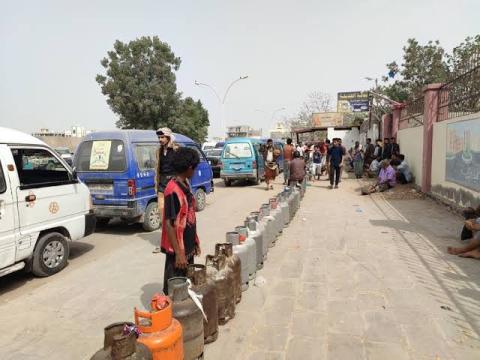War in Yemen..Death to journalists


Journalists Rasha Abdullah al-Harazi and her husband Mahmud al-Utmi were about to drive to a hospital in Aden for a check-up on Rasha's pregnancy. But as the couple got into their car, a bomb exploded. Rasha died on the spot, along with her unborn baby. Her heavily injured husband was taken to the hospital. He survived. "Rasha was such a lovely young woman, only in her mid-20s. I never thought she could become a victim of an attack," says Asma A., a good friend of the couple.
Threats from all sides
Like Mahmud al-Utmi and Rasha Abdullah al-Harazi, Asma A. is a journalist. She therefore does not want to see her real name published for security reasons. Before the car bomb, Mahmud al-Utmi used to freelance for the Emirati television station Al-Ain. Unconfirmed sources say that he had also worked for Saudi media outlets. "I still cannot fathom that Rasha was killed in such a brutal way. She only occasionally worked as a photojournalist or accompanied her husband for reports," Asma A. remembers in tears.
Yemeni journalists have been reporting on the collapse of their country since President Ali Abdullah Saleh was overthrown in the wake of the Arab uprisings in 2012. For the past seven years, a civil war has been raging in Yemen, which is fuelled by foreign powers. A coalition led by Saudi Arabia has been supporting the country's government since 2015. Saudi Arabia's arch-enemy, Iran, has been backing the opposing Houthi rebels, who now control large parts of the country – including the actual capital, Sanaa.
The majority of Yemeni government officials have moved to neighbouring Saudi Arabia. Aden, which is about 400 kilometres south of Sanaa, however, has been administered by separatists as part of a so-called Southern Transitional Council since 2020. This United Arab Emirates-backed body has repeatedly clashed with the government over control of the south. In turn, Aden has been targeted ever since the internationally recognised government of President Abed Rabbo Mansur Hadi settled there after the Houthis drove it out of Sanaa. In addition, terrorist groups such as al-Qaida or Islamic State (IS) seek to expand their influence amid the chaos.
"Yemen's journalists are targeted by all political factions," says Asma A., adding "if you take a clear political stance in your reporting, you may as well expect to be killed or arrested."
Civil war in Yemen: "Barely any protection for journalists"
"Journalists are often perceived as part of a conflict party rather than as civilian observers," said Christopher Resch, press officer for Reporters Without Borders (RSF) in Berlin, on the phone. "As a result, they experience barely any protection." Yemen currently ranks 169 out of 180 on RSF's press freedom rankings.
Mahmud al-Utmi was known for reporting critically on the Houthis. More specifically, he is said to have documented human rights abuses. He and his wife Rasha had already left Sanaa out of concern for his safety and moved to Aden.
According to RSF, at least four journalists have been killed in 2021: three of them have died in an attack on a convoy of cars belonging to the governor of Aden on 10 October; Rasha was the fourth.
Moreover, numerous journalists are currently in detention. According to the New York-based Committee to Protect Journalists (CPJ), at least 19 journalists have been killed in Yemen since 2014.
Aden is particularly dangerous
"All four journalists who were killed this year have died in the Aden region," Resch said. He added that "several reports suggested that the Houthis were responsible for the acts, as they are trying to extend their power to this part of the country."
Yet, as Resch points out, it is also extremely dangerous to work as a journalist in other parts of the country, since it is not only the Houthis who torture, arrest or issue death sentences against journalists.
So far, the Houthis have denied being behind the attack on the journalist couple in Aden.
Asma A., the couple's journalist friend, however, cannot let go of what happened. She, too, used to live in Sanaa where she reported for various media, including international outlets. "But eventually, I could no longer leave the house with a camera, let alone conduct interviews on the street," she said on the phone. It had become too dangerous. "I could only have worked safely with a permit. But to get it, I would have had to commit to taking sides politically. I didn't want to do that.
My reports were always balanced," she said.
Escape to exile
In addition to threats from political factions, the fighting, bombings and the poor economic and humanitarian situation exacerbate the daily work of journalists. TV stations are closing down – and those who do have work usually earn little money. For many journalists, exile is the only viable option – a decision that comes with its own challenges. After all, not all journalists are able to find work abroad, and moreover, they don't know what to expect when they return.

Yemeni officials on Monday condemned arrests and prosecutions by the Iran-backed Houthi militia directed against media, journalists and celebrities…

Yemen's warring parties are gearing up for new waves of conflict in 2023 amid a lack of decisive steps towards sustainable peace, adding to the suf…

The UAE will help to recruit doctors and deliver crucial supplies for hospitals in Yemen under a major healthcare drive. The Khalifa bin…